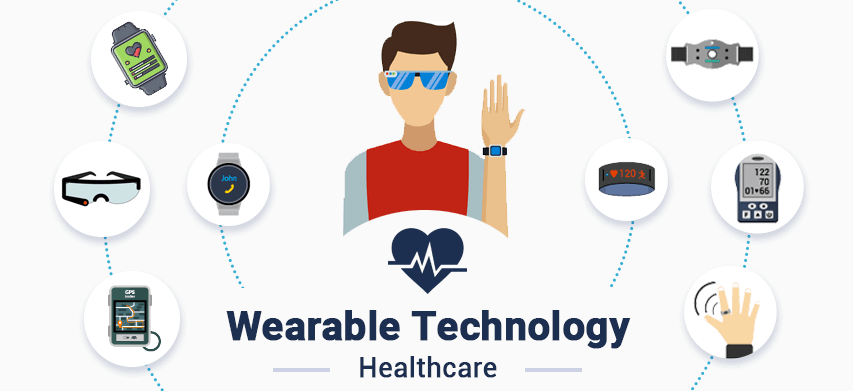In recent years, wearable devices medical have revolutionized the field of care, bringing unprecedented convenience and accuracy to healthcare monitoring. These compact gadgets, ranging from smartwatches to fitness bands, have evolved beyond mere accessories to become powerful tools for tracking vital health information. With the ability to continuously monitor various parameters, wearable devices medical have transformed the way we manage our well-being. This article explores the immense potential of wearable devices in medical field, highlighting their advantages, applications, and the positive impact they have on our lives.
Table of Contents
Enhancing Personal Health Management
wearable devices medical have empowered individuals to take charge of their own health by providing real-time data on various health metrics. From heart rate and blood pressure to sleep patterns and activity levels, these devices offer comprehensive insights into our well-being. By leveraging advanced sensors and algorithms, wearable devices in medical provide accurate and personalized information, enabling users to make informed decisions about their lifestyle and healthcare choices.
Preventive Healthcare Monitoring
One of the key benefits of wearable devices in medical care is their role in preventive healthcare monitoring. These devices can detect early warning signs and deviations from normal health patterns, alerting users to potential health risks. For example, continuous monitoring of heart rate and electrocardiogram data can help identify irregularities that may indicate the onset of cardiovascular conditions. By providing timely notifications and actionable insights, wearable devices medical enable proactive intervention and preventive measures, ultimately reducing the burden on healthcare systems.
Chronic Disease Management
wearable devices medical play a crucial role in the management of chronic diseases, such as diabetes, asthma, and hypertension. These devices enable continuous monitoring of vital parameters, allowing patients and healthcare providers to track fluctuations and trends over time. By integrating with mobile applications and cloud-based platforms, wearable devices in medical provide a seamless flow of information, facilitating remote patient monitoring and telehealth services. This enhances the quality of care, improves patient outcomes, and reduces hospital readmissions.
Remote Patient Monitoring
The advent of wearable devices medical has transformed the landscape of remote patient monitoring. Patients can now receive medical-grade monitoring outside traditional healthcare settings, allowing for increased flexibility and independence. wearable devices in medical equipped with biosensors and connectivity options transmit real-time data to healthcare providers, enabling timely interventions and personalized treatment plans. Remote patient monitoring not only improves patient convenience but also optimizes healthcare resource utilization, particularly in rural or underserved areas.
Advancements in Wearable Technology
Continuous advancements in wearable technology have expanded the capabilities and applications of these devices in the medical field. Innovations such as miniaturized sensors, improved battery life, and advanced data analytics algorithms have enhanced the accuracy and reliability of wearable devices medical. Additionally, the integration of artificial intelligence and machine learning algorithms has enabled wearable devices in medical to provide more actionable insights and predictive analytics. These developments are driving the growth of personalized medicine and empowering both patients and healthcare professionals with valuable data-driven decision-making tools.
wearable devices medical in Clinical Trials
wearable devices medical are increasingly being utilized in clinical trials to gather objective and real-time data from participants. These devices offer researchers a wealth of information, including activity levels, sleep patterns, vital signs, and medication adherence. By incorporating wearable technology, clinical trials become more efficient and cost-effective, as data collection becomes automated and less reliant on participant self-reporting. This improves the reliability and accuracy of study outcomes, allowing for better-informed decisions regarding drug efficacy and safety profiles.
Addressing Privacy and Data Security Concerns
As wearable devices medical gain popularity in the medical field, it is imperative to address privacy and data security concerns. With sensitive health information being transmitted and stored, manufacturers and healthcare organizations must ensure robust data encryption, secure storage protocols, and strict access controls. Compliance with regulatory standards such as HIPAA (Health Insurance Portability and Accountability Act) is crucial to maintaining patient confidentiality and trust. Additionally, clear user consent processes and transparent data usage policies should be implemented to protect individual privacy rights.
Future Trends and Possibilities
The future of wearable devices in medical care holds immense promise. With ongoing technological advancements, we can expect even more sophisticated sensors, improved battery efficiency, and seamless integration with other healthcare systems. wearable devices medical may become integral components of personalized medicine, providing real-time feedback and interventions based on an individual’s unique health profile. Furthermore, the integration of wearable devices medical with telemedicine platforms and virtual reality technologies may revolutionize the way we access and receive healthcare services.
Conclusion
wearable devices medical have emerged as powerful tools in the field of medical care, enabling individuals to monitor their health and empowering healthcare providers with valuable data. From enhancing personal health management to enabling remote patient monitoring, these devices have transformed healthcare delivery. As technology continues to advance, wearable devices medical are poised to play an even more significant role in preventive care, chronic disease management, and clinical research. However, it is crucial to address privacy and data security concerns to maintain public trust and ensure the responsible use of these devices. With continued innovation and collaboration between technology and healthcare sectors, wearable devices medical have the potential to shape the future of medical care, bringing health at our fingertips.
Learn about: Empower your health journey with the power of wearable devices medical, putting your well-being at your fingertips.




Be First to Comment